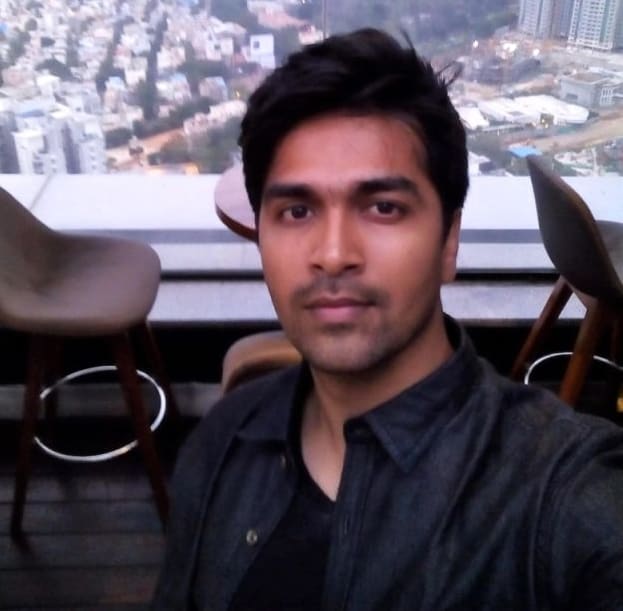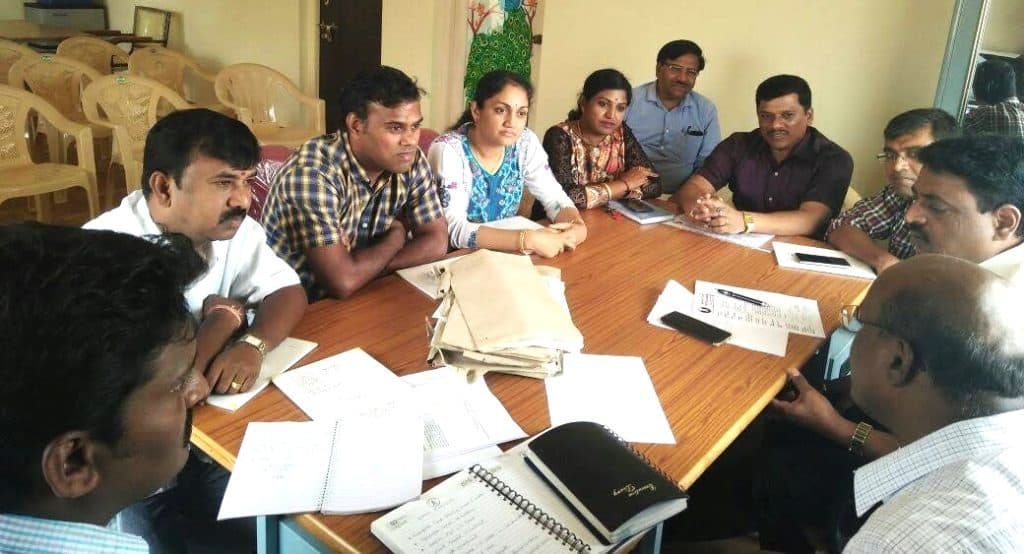Bengaluru’s ward committees have been chaired by nodal officers appointed on a temporary basis by the BBMP ever since the last Council’s term ended in September 2020. They were mostly senior municipal officials who happened to reside in that particular ward.
Before this temporary arrangement, formal ward committee included 10 citizens nominated from the ward, and were mandated to meet twice a month. Chaired by the elected ward councillor and attended by ward officials, these meetings were supposed to decide on ward-level budget, plan, prioritise and monitor works.
Now, there are no formal ward committees, but nodal officers chair the meetings with ward residents twice a month.
So has the replacement of elected corporators by nodal officers made any difference? Are ward residents and RWAs (Resident Welfare Associations) happier without corporators who often had their own local political agendas?
Nodal officers–good, bad and indifferent
It’s complicated, according to citizens.
According to active citizens and RWA members in several wards this reporter spoke to, many nodal officers don’t hold regular meetings. And if and when they do, are hesitant to take decisions or respond to citizens’ questions. In the absence of formal ward committees, any ward resident can now participate in these meetings. (In formal ward committees, the public can only view the proceedings and not participate directly.)
As per a survey by the NGO Janaagraha covering August 2020 to September 2021, nodal officers in only 33 out of 198 wards had held the mandated two ward committee meetings per month. In 65 wards, only seven meetings were held in the one-year period. In fact, BBMP has been considering disciplinary action against nodal officers who don’t hold meetings.
Read more: Ward committee meetings lack proper rules, representation and legal framework
The nodal officer does hold regular ward committee meetings, but remains largely silent, says Kochu Sankar, President of Trinity Enclave RWA in ward 26 (Ramamurthy Nagar). “The nodal officer does not take responsibility, show authority or give his opinion. They just try to follow BBMP’s protocols. The former corporator was much better in terms of decision-making and getting things done.” Since the nodal officer does not engage in discussions, it’s the ward’s Assistant Engineer (AE) who responds to citizens’ queries at these ward committee meetings.
One reason why nodal officers are not answerable to residents is that they may be residing in the ward, but not necessarily be office-bearers in the same ward. Besides, their responsibility as nodal officer is in addition to their routine work, and they could get transferred frequently.
“Ward 24 (HBR Layout) has had three different nodal officers and the third officer too would be replaced soon,” says Vikram Mailar Vijay, a social activist in the ward. “The committee secretary who is the ward AE also keeps changing every 3-6 months. Then the public has to restart discussing the progress of works [with the new official]”.

“Officers write down people’s concerns, and these may or may not be addressed,” adds Vikram. “It’s more of a grievance cell than a platform for planning for the ward. We can question a corporator about why an issue we had highlighted was not acted on. But this is not possible with the nodal officer – we don’t see them at any other time than the ward committee meetings, and they don’t have a sense of responsibility.”
RWA members in wards like Hagadur and Rajarajeshwari Nagar too say their nodal officers have held very few meetings.
Residents in most wards say there were problems during the corporators’ tenure too. For example, the corporator would ensure that a significant proportion of ward committee members were their supporters. Many corporators did not hold ward committee meetings regularly either. They would also seek the local MLA’s approval for any significant work in the ward.
But residents seem more disenchanted with nodal officers’ lack of accountability and authority, and believe corporators are likely to be more effective and democratic. The corporators are accessible, they say, and at least resolve minor issues quickly and put pressure on ward officials to finish works.
Wards become MLAs’ political platform
While the MLAs in the BBMP jurisdiction have always tried to dictate civic works at the ward level, their hold seems to have strengthened since the exit of corporators. With Assembly elections close, accelerating ward-level works has become a way for MLAs to earn political mileage, even though these works are not their responsibility. While ward engineers usually finalise ward-level works after discussions with the corporator, now they answer to the constituency’s MLA, say citizens.
In Mahadevapura constituency, for example, the Mahadevapura Task Force headed by MLA Aravind Limbavali is involved with ward-level issues. The constituency also has ‘Shakti Kendras’ headed by BJP members, each overseeing blocks of about 100 houses. The BJP top leadership had introduced the concept of Shakti Kendras in 2014 for micro-level election management, and these offices exist in several states now.
“Instead of ward committees and ward engineers, we are now asked to approach the Task Force and Shakti Kendras which are not statutory bodies,” says Murali G, a former ward committee member in ward 84 (Hagadur) in the constituency. The ward’s nodal officer is not active, and holds ward committee meetings only upon pressure from residents. During the meetings, citizens enter their complaints in a register and leave, and the minutes of the meeting are not shared later, Murali adds.
“Even if you raise a concern with the ward engineer or nodal officer, they will ask you to go through the Shakti Kendras. The ward engineer informs Shakti Kendra presidents about the ward committee meetings in advance, and they attend the meetings. Works get done if somebody from the party can get a brownie point out of it.” Many roads in the ward are being re-laid now, and the MLA turns up to inaugurate even minor works, says Murali.

In Shanthinagar, a resident said on condition of anonymity, that the local Congress MLA N A Haris himself presides over ward committee meetings now, with meetings of multiple wards clubbed together. Though the MLA is not supposed to conduct the meetings, this resident says it’s welcome since the nodal officer takes no initiative.
“The MLA has put in a system to accept complaints,” says the resident. “With this, minor maintenance works get done, such as fixing some potholes and streetlights. But there are no discussions on budget planning or development works”.
Read more: What is your MLA supposed to do for you?
In ward 19 (Sanjay Nagar), the nodal officer is BBMP Special Commissioner (Finance), Thulasi Maddineni, known for her initiative in getting Rs 60 lakh disbursed to each ward recently for local works. Sanjay Nagar was among the five wards where the NGO Janaagraha tied up with BBMP to help residents survey and identify works to be done with the fund. Thulasi, known to be a proactive officer, had approved the list of works.
However, Geeta G, Secretary of Sanjay Nagar RWA, says that despite this, the ward engineer tried to change the list. “The ward engineers follow the directions of MLA,” says Geetha. “The nodal officer can approve works, but whether these happen on the ground is often at the discretion of the ward engineer. Even when we ask, engineers don’t disclose the status of the works or the fund spent.” (As nodal officers are not statutory authorities, they don’t have the same powers corporators have as per the Karnataka Municipal Corporation Act.)
Read more: BBMP Council election: “As history repeats itself, citizens are paying the price”
But even corporators don’t have much power with respect to the ward committees, says Srinivas Alavilli of Janaagraha. “On paper, ward committees are run by the BBMP Commissioner,” says Srinivas. “But corporators have power over the government machinery. While there are no corporators now, the MLAs have always been ‘super-corporators’. These political equations don’t change [even when nodal officers are in charge].”
Ex-Mayor Gangambike Mallikarjun, on whose initiative ward committee meetings started in Bengaluru, says she is unaware of instances where MLAs attend ward committee meetings. “However, in the absence of corporators, only MLAs may be able to resolve some local issues in their constituencies,” says Gangambike. “Ward committees can function effectively only once corporators are elected again”.
No budget planning, no transparency
Though one principal function of ward committees is to plan the annual budget for the ward, this has not happened in most wards yet – either during the corporators’ tenure or the nodal officers’. Residents in some wards say their corporators were open to ideas on development works and would try to get funds sanctioned. However, hardly any ward has had proper participatory budgeting.
Similarly, ward committees are supposed to monitor works, but at no time have they had access to data on spending or the status of works in the ward.
In this sense, some citizens say that corporators as well as nodal officers have been equally ineffective. However, the majority seem to prefer corporators.